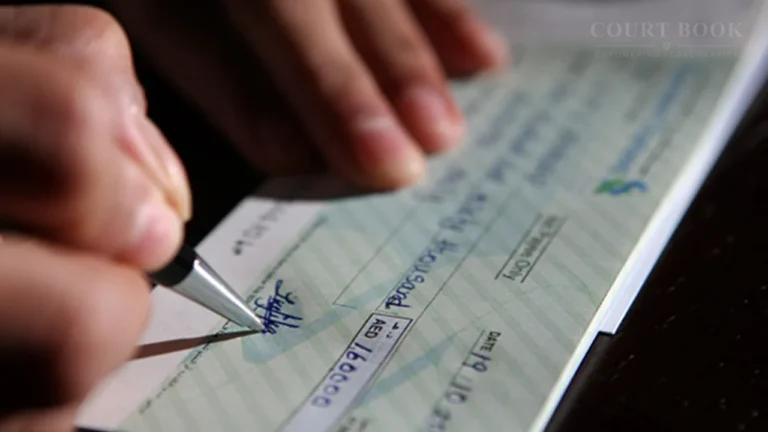The Delhi High Court recently delivered a significant judgment in Gurvinder Singh Toor v. Rohit Malhotra, dismissing a petition seeking the quashing of a complaint filed under Section 138 of the Negotiable Instruments Act, 1881 (NI Act). The case revolved around the dishonour of two post-dated cheques issued pursuant to a Memorandum of Understanding (MoU) for the purchase of shares. The Court upheld the validity of the MoU, emphasizing that it created a legally enforceable debt, and refused to interfere with the ongoing criminal proceedings.
Background of the Case
The petitioner, Gurvinder Singh Toor, was the Principal Director of Zoi International Company Ltd., while the respondent, Rohit Malhotra, held a 45% equity stake in the company. Disputes arose among the directors, leading to Malhotra’s decision to sell his shares to Toor for ₹1.9 crore. An MoU dated 14.02.2020 was executed, wherein Toor issued two post-dated cheques as part of the consideration. However, before the cheques could be encashed, Toor terminated the MoU citing financial constraints and issued stop payment instructions to his bank.
When the cheques were dishonoured, Malhotra initiated proceedings under Section 138 of the NI Act. Toor approached the High Court seeking quashing of the complaint, arguing that the cheques were issued for a future contingent liability and not for an existing debt.
Read also:- Allahabad High Court Warns SDM Over Illegal Adjournment Due to Bar Strike in Ashok Kumar PIL Case
Key Contentions of the Parties
Petitioner’s Arguments:
- The cheques were issued in anticipation of a Share Purchase Agreement (SPA), which was never executed.
- The MoU was terminated unilaterally before the cheques were presented, extinguishing any liability.
- No legally enforceable debt existed at the time of cheque presentation.
Respondent’s Arguments:
- The MoU was a binding contract, and the cheques were issued towards a concluded agreement.
- The petitioner could not unilaterally terminate the MoU without mutual consent.
- The presumption under Section 139 of the NI Act favored the respondent, as the cheques were admitted to be signed by the petitioner.
Read also:- Supreme Court Cancels Court No.16 Sitting on 4 August 2025, Cases Rescheduled
Court’s Analysis and Findings
The High Court, relying on precedents from the Supreme Court, underscored the following principles:
"A drawer who signs a cheque and hands it over to the payee is presumed to be liable unless the drawer adduces evidence to rebut the presumption that the cheque has been issued towards payment of a debt or in discharge of a liability."
– Oriental Bank of Commerce v. Prabodh Kumar Tewari (2022)
Legally Enforceable Debt: The Court referred to a Coordinate Bench’s judgment in Rohit Malhotra v. Gurvinder Singh Toor, where the MoU was held to be a valid and binding contract. Since the petitioner had already acted upon the MoU by issuing cheques, he could not later retract his obligations.
Presumption Under Section 139: The petitioner admitted to signing the cheques and receiving the statutory notice. Thus, the presumption of liability under Section 139 of the NI Act was squarely applicable.
Disputed Facts Require Trial: The Court reiterated that disputed questions of fact, such as the existence of a debt, must be adjudicated during trial and cannot be a ground for quashing proceedings at the preliminary stage.
Read also:- Allahabad High Court Upholds Summoning of Accused Under Section 319 Cr.P.C. in POCSO Case
"Quashing proceedings at preliminary stages will result in finality without the parties having had an opportunity to adduce evidence."
– Rathish Babu Unnikrishnan v. State (NCT of Delhi) (2022)
Key Takeaways:
- An MoU can create a legally enforceable debt if terms are conclusive.
- Stop payment instructions do not absolve liability under Section 138 NI Act.
- Presumption under Section 139 shifts the burden of proof to the accused.
- Quashing petitions are rarely entertained when factual disputes exist.
The judgment serves as a cautionary note for parties issuing cheques, emphasizing that financial constraints or unilateral termination of agreements may not shield them from criminal liability under the NI Act.
Case Title: Gurvinder Singh Toor vs. Rohit Malhotra
Case No.: CRL.M.C. 1474/2022 & CRL.M.A. 6375/2022














